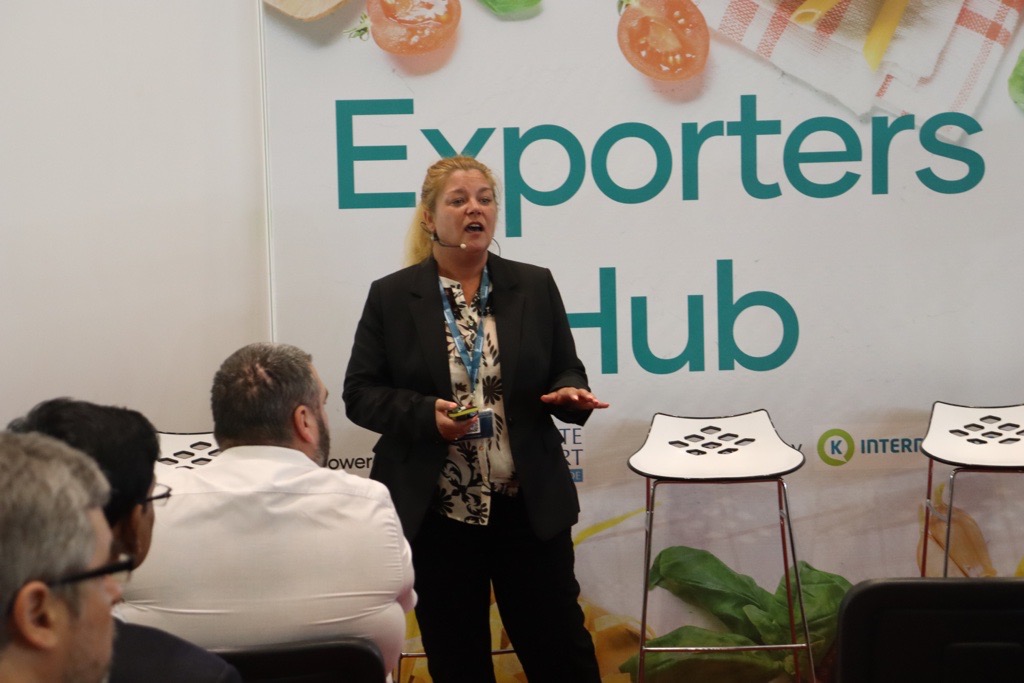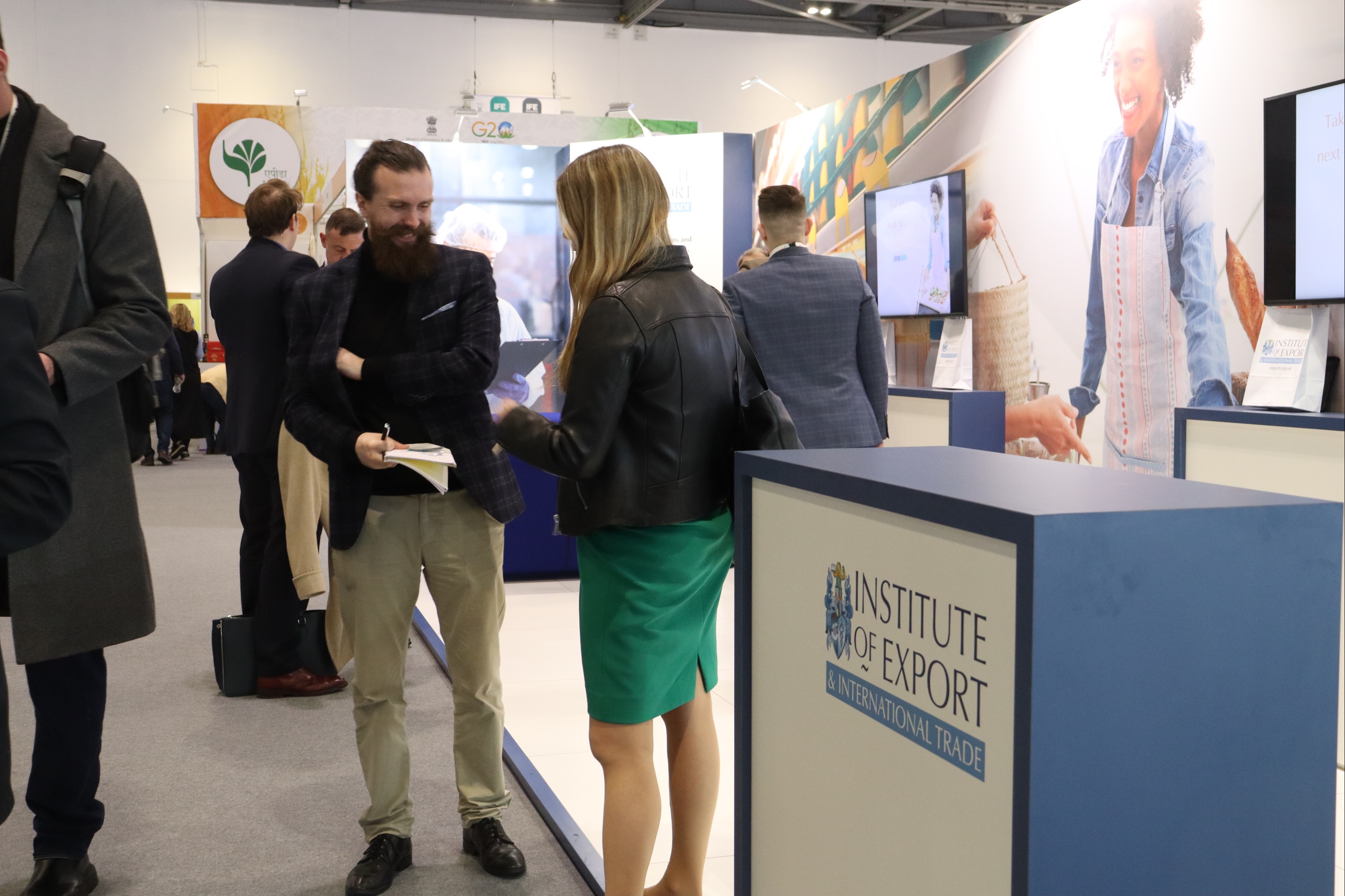
At the International Food and Drink Event (IFE) this week in London (20-22 March), thousands of professionals from the food and beverage industry gathered to sample products, build connections and promote their fares to fellow attendees.
The Institute of Export & International Trade (IOE&IT) was there as part of its mission to boost UK exports and help British firms sell their goods aboard.
As an official partner of IFE 2023, the IOE&IT powered the show’s Exporters Hub – which was sponsored by K International – and sent a delegation of staff there to talk to and help conference attendees.
Hub
The hub featured a range of food and drink products, offered as refreshments, as well as an events space where several IOE&IT experts gave presentations to packed audiences.

Laura Williams, trade and customs consultant at the IOE&IT academy, explains the thinking behind the Exporters Hub and the schedule of talks:
“The IOE&IT was at the IFE in order to give its expertise and knowledge to the many different trades within the food industry, from small manufacturers to logistics companies.
“We discussed the new regulations that are going to be coming in soon, such as phytosanitary and export health certificates.
“The idea was also to try and make the information more user-friendly, so we answered questions from members of the public thatalso attended, whether they’re IOE&IT members or not.
Williams gave three presentations over the course of the three days, including one on the yet-to-be-announced Target Operating Model (TOM), where she briefed attendees on what to expect from the UK’s new approach to implementing import controls.
Challenges
Another of the IOE&IT’s experts – trade and customs stakeholder relationship specialist Mark Lamming – gave his first talk on the hidden costs of exporting, which included the extra charges of VAT and customs duties that often get overlooked in the planning of many businesses looking to sell abroad.
Speaking after his packed-out presentation, he said:
“I had very interesting conversations about how sanitary and phytosanitary (SPS) measures actually affected trade, which led onto another discussion about the impact of Brexit.
“A few freight forwarders came to talk to me about SPS checks. Quite a few SMEs asked questions about exporting too.

Aside from talks, Lamming said that the event had a fun atmosphere and a delectable range of samples.
“I’ve seen some wonderful products on display with some really tasty food drinks. Everyone seems engaged and happy to learn.”
Export champions
Another event hosted in the Exporter Hub was a panel featuring some of the Department of Business and Trade’s (DBT) export champions, discussing their experiences in international trade.
Joelle Drummond, founder of non-alcoholic craft beer producer Drop Bear Beers, was one of the panellists at the hub talking about her work.
Young company
Her company is relatively new and began seeing massive export growth during the Covid pandemic. She said:
“We’re quite small as a company, and exports come to about 10% of our total revenue. It used to be larger as a percentage, but our overall revenue has grown so much over the past few years.
“Exporting was a revenue stream we developed during the pandemic. We didn't do any exporting prior to June 2020. That's when we launched our own e-commerce website and started selling abroad in the initial lockdown period.
“We actually experienced sales growth of 2,000% and it really opened our eyes.”
Previously, Drummond had seen exporting as ”something for the future” rather than an important part of her business.
Now, she’s a big evangelist of smaller companies, like hers, starting to sell internationally much earlier in their development process.
“It doesn't matter how big you are or how early you are into the opportunity as a business. You can start small if you want. It's a great way to diversify which helps stability.”
Atmosphere
The conference stalls featured firms that were well established in the UK, but also smaller companies looking to gain a foothold in the UK. These businesses ranged from the Netherlands to Ecuador to Kenya, and all seemed keen to being selling their products to the British market.

Emily Murphy, head of marketing, UK, Netherlands & Nordics for e-commerce giant Alibaba spoke of the atmosphere:
“There is a really good buzz about it. It’s great to have the opportunity to speak with a number of food and drink providers, as well as to sample their.
“A lot of key partners are here. Whether it’s the IOE&IT, DBT or Scotland Food and Drink, it's great to be meeting with the number of other businesses.
“It’s also great to be back at trade shows again after the pandemic.”



